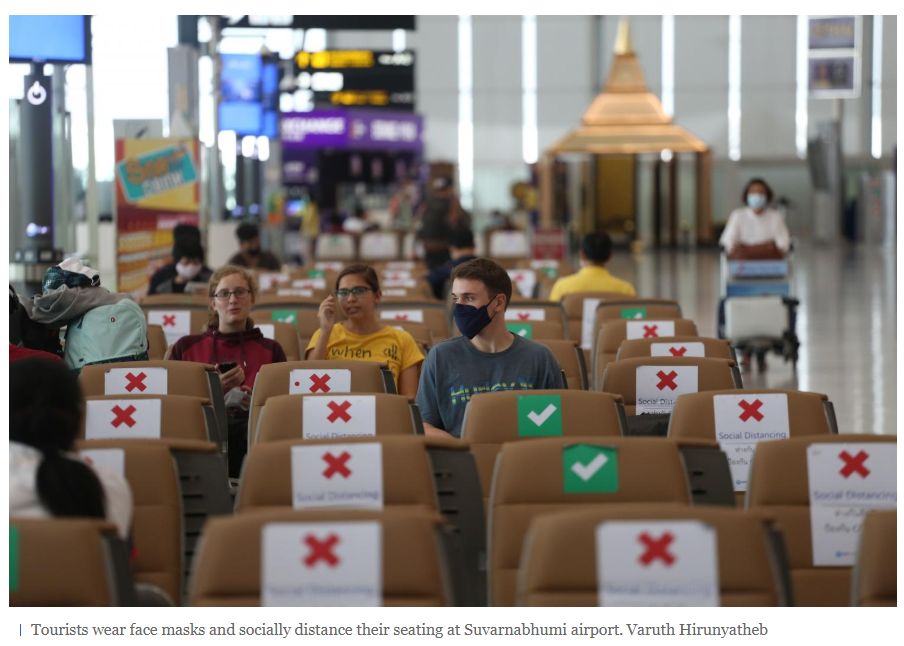Thailand: ASP: 15% Q2 contraction possible
Thailand’s economy could contract by 15% year-on-year in the second quarter from lockdown measures, with rising contagion risk affecting economic activities on the external front, says Asia Plus Securities (ASP).
“Second-quarter GDP is likely contract for both quarter-on-quarter and year-on-year figures because of the country’s lockdown measures against the pandemic,” said ASP executive vice-president Therdsak Thaveeteeratham.
“The reopening of business activities will help the economy gradually rebound in the second half.”
Full-year GDP is forecast to contract by 7.8% year-on-year in the base case scenario, with a 10% decline in exports in US dollar terms, according to ASP.
The contraction could flare up to 8.4% if exports fall by 13.7%, said the securities firm.
“Although listed companies’ business is expected to pick up in the second half, aggregate annual earnings are expected at 600 billion baht, down from our projection of 680 billion, with further downward revision still on the cards,” said Mr Therdsak.
ASP’s GDP forecast is in line with the Bank of Thailand’s 8.1% full-year contraction, while the World Bank projects a 5% drop, with an estimated 8.3 million workers losing employment or income because of the crisis.
The National Economic and Social Development Council is scheduled to release second-quarter GDP data on Aug 17.
Thailand, Asean’s second largest economy, reported first-quarter growth of 2.8% from a year earlier, the smallest since 2014’s final period.
Quarter-on-quarter GDP growth on a seasonally adjusted basis came in at 1%.
A drop in exports, public investment and foreign tourist arrivals contributed to the anaemic figures.
Thailand’s economic recovery in the second half will see gradual recovery momentum on a quarter-by-quarter basis, with four main factors determining the outlook, said Amonthep Chawla, executive vice-president and head of research at CIMB Thai Bank.
A looming cabinet reshuffle will have an impact on the domestic economy, whereas a plan to inject capital worth 400 billion baht to rev up consumer purchasing power and infrastructure development projects in the Eastern Economic Corridor can boost confidence, said Mr Amonthep.
The exchange rate is another factor affecting the economic outlook in the second half as the Bank of Thailand has signalled it will not lower interest rates to tame the baht’s strengthening value, but rather manage exchange rate movements to be in line with regional currencies, he said.
Further monitoring for a second wave of infections is necessary as there could be possible impact to Thailand’s travel bubble initiative and logistics, as well as Thai exports recovering based on positive developments in the US-China trade dispute, said Mr Amonthep.
Source: https://www.bangkokpost.com/business/1948196/asp-15-q2-contraction-possible


 English
English




